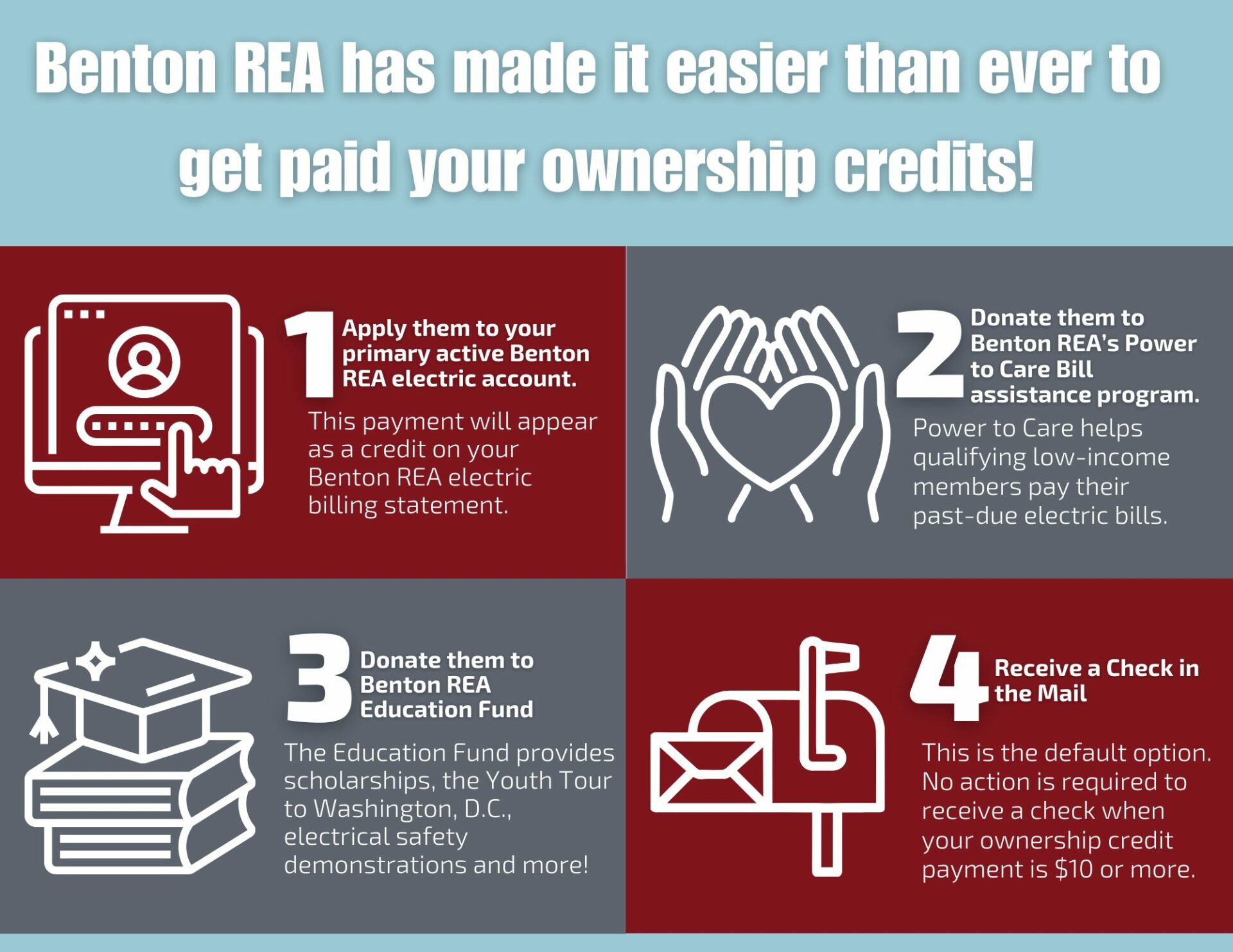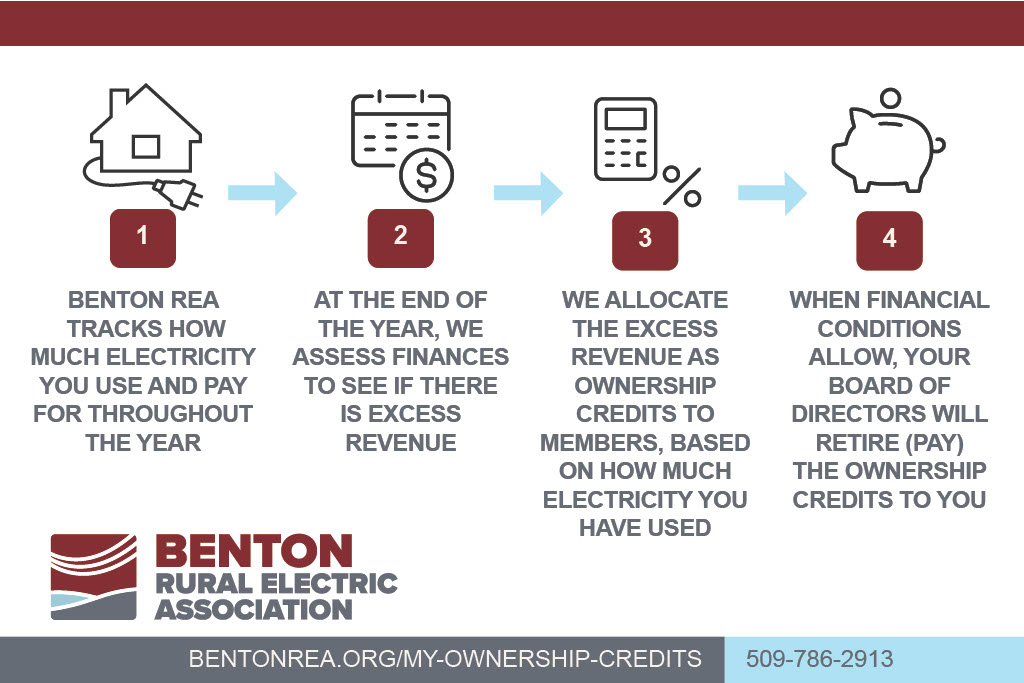My Ownership Credits It pays to be a Member
You are a Member and an Owner of Benton REA
Ownership credits are a unique benefit of being part of an electric cooperative like Benton REA. At the end of each year, margins (profits) are allocated back to members based on their electricity purchases, known as ownership credits. This reflects each member’s ownership and contribution to Benton REA.
Since formed in 1937, Benton REA has paid more than $20.8 million in ownership credits back to its member-owners. By purchasing electricity from Benton REA, you became a member and an owner of the cooperative.
Being an owner of an electric cooperative does not mean you own poles, wires and transformers. Your ownership is reflected in other ways, such as your vote. Members vote on important issues and who from the membership will represent them on the Benton REA Board of Trustees.
Choose How You Get Paid

To change how you get paid, call 509-786-2913.
7 COOPERATIVE PRINCIPLES:
Open and Voluntary Membership
Membership in a cooperative is open to all persons who can reasonably use its services and stand willing to accept the responsibilities of membership, regardless of race, religion, gender, or economic circumstances.
Democratic Member Control
Cooperatives are democratic organizations controlled by their members, who actively participate in setting policies and making decisions. Trustees are elected from among the membership and are accountable to the membership. In primary cooperatives, members have equal voting rights (one member, one vote); cooperatives at other levels are organized in a democratic manner.
Members’ Economic Participation
Members contribute equitably to, and democratically control, the capital of their cooperative. At least part of that capital remains the common property of the cooperative. Members allocate surpluses for any or all of the following purposes: developing the cooperative; setting up reserves; benefiting members in proportion to their transactions with the cooperative; and supporting other activities approved by the membership.
Autonomy and Independence
Cooperatives are autonomous, self-help organizations controlled by their members. If they enter into agreements with other organizations, including governments, or raise capital from external sources, they do so on terms that ensure democratic control as well as their unique identity.
Education, Training, and Information
Education and training for members, elected representatives, CEOs and employees help them effectively contribute to the development of their cooperatives. Communications about the nature and benefits of cooperatives, particularly with the general public and opinion leaders, helps boost cooperative understanding.
Cooperation Among Cooperatives
By working together through local, national, regions and international structures, cooperatives improve services, bolster local economies, and deal more effectively with social and community needs.
Concern for Community
Cooperatives work for the sustainable development of their communities through policies supported by the membership.

